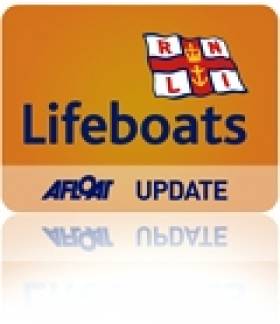Displaying items by tag: Tommy Annesley
Arklow RNLI Hosts Summer Solstice Fundraiser
#RNLI - Arklow RNLI supporters are being asked to come out and walk or jog a midnight mile - four laps of the running track at Coral Leisure Centre - in Arklow this Friday 21 June.
The walk/run will take place on the Summer Solstice from 10pm. The event is free and all donations are welcome. Prize raffles will take place, and Stormy Stan and his lifeboat buddies will be on hand to cheer on the participants.
Participants are being asked to assemble at the Lake Coffee Shop in the leisure centre from 10pm, with the walk/jog commencing just before midnight.
Full details are available from Mary at 086 304 5418.
In other Arklow RNLI news, a former chairman of fundraising at the lifeboat unit was honoured recently by the charity for his trojan work recently.
Tommy Annesley, a local councillor, received the Bronze Award at the recent RNLI Annual Presentation of Awards at Trinity College Dublin.
A few days later, Annesley was again honoured, this time by his hometown and fellow councillors when he became Lord Mayor of Arklow.
All at Arklow RNLI including lifeboat crew, fundraisers and other volunteers extended their best wishes to Tommy Annesley for his tenure as Lord Mayor.
Meanwhile, at the recent RNLI AGM in London, Arklow RNLI operations manager Jimmy Tyrell made a presentation to current RNLI operations director Mike Vlasto to honour the relationship and friendship that has developed between them in their years in the RNLI.
- A unique handcrafted piece was made locally in Arklow for the presentation.
Both Tyrell and Vlasto are retiring from the RNLI over the next year.





























































